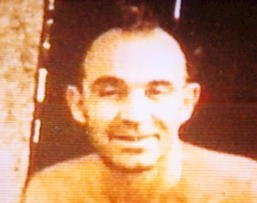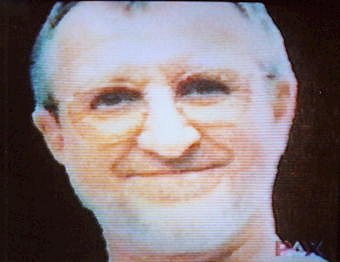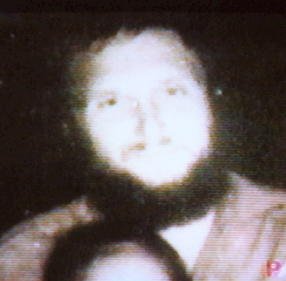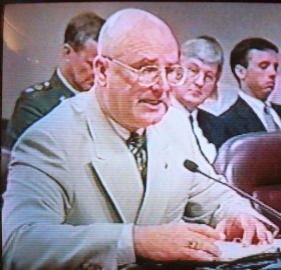|
ORBACH: " But how can the US government discount evidence of these POWs in their own highly classified intelligence documents? And how can they discredit eyewitness reports and even communication from the POWs themselves that have been smuggles out of captivity? Is there some compelling evidence - a smoking gun so to speak - that the government canít or wouldnít face up to?
|
 |
|
ALFOND: A post card was placed inside an envelope and mailed to Sparta Arkansas in 1992. It read "People of Sparta, A.R. I was born in Sparta, AR. I enlisted in the U.S. Army in September 1949. Iím still alive. Iím sick, and still a POW in North Korea." Signed: Private W.C. East with his serial number.
|
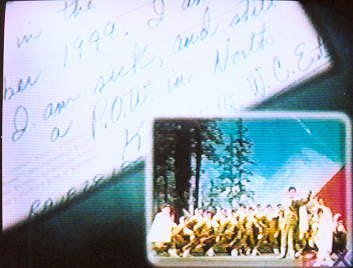 |
|
ORBACH: Itís hard to imagine the Senate and particularly Senator Kerry and his committee not taking the post card seriously. And we would like to report that a thorough investigation was conducted, but the truth is the Senate had a somewhat different reaction.
|
|
ALFOND: The post card was an ingenious idea and turned out to be quite credible. In fact, another post card came from East and it was sent to Senator John Kerry of Massachusetts, who was then the Chairman of the Senate Select Committee on POW/MIA Affairs. Instead of just asking a few questions or contacting the family in Sparta, someone in the Senate Select Committee took it upon themselves to just through it into the trash and dismiss it as a hoax. Then someone actually retrieved the post card from the trash and sent it to Eastís family in Sparta. The family verified it was Eastís handwriting by comparing it to a previous letter from him.
|

|
Sydney H. Schanberg, Ted Sampley: "No one in the United States Senate pushed harder to bury the POW/MIA issue, the last obstacle preventing normalization of relations with Hanoi, than John Forbes Kerry. Sen. John F. Kerry, chairman of the Senate Select Committee on POW/MIA Affairs, is one of the key figures pushing for normalization. Kerry visited Vietnam where he has been doing two things: (1) praising the Vietnamese effusively for granting access to their war archives and (2) telling the press that there's no believable evidence to back up the stories of live POWs still being held. Ironically, that very kind of live-POW evidence has been brought to Kerry's own committee on a regular basis over the past years, and he has repeatedly sought to impeach its value. Moreover, Kerry and his allies on the committee - such as Sens. John McCain, Nancy Kassebaum and Tom Daschle - have worked to block much of this evidence from being made public."
|
ORBACH: Neither Senator Kerry, his committee, nor the Senate generally exhibited the slightest interest in this evidence of live POWs. But by January 1996 the increase in credible reports of live POW sightings in North Korea did bring about a very unexpected response at the Pentagon.
|
|
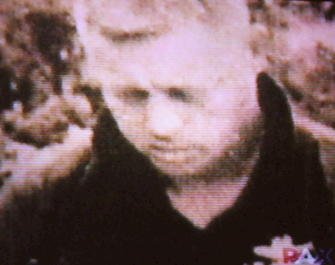
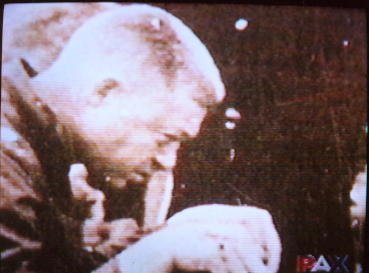 |
|
ORBACH: I.O. Lee, a DPMO senior research analyst, wrote a classified background paper on live sighting reports that actually contradicted the official Pentagon position. Does this mean the DPMO was finally putting its official stamp of validation on live POWs?
|
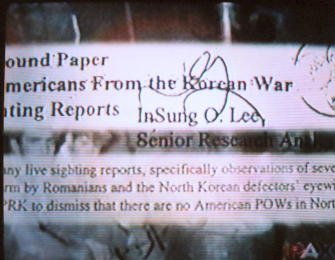 |
|
ALFOND: : In his report, Lee was particularly interested in the October 1979 statement by Serban Oprica who was a Romanian who was employed in a North Korean factory in Pyongyang. Oprica was on a bus tour with other Romanians and a Korean guide when the bus suddenly made a turn into a small village, which appeared to be an agricultural collective farm. Oprikaís statement further read, after a turn a large field with tiny houses appeared before my eyes. From those houses a man that was taller than the Koreans approached the bus. Everyone in the bus was shocked because the man was not Korean. He was in his fifties and had light colored hair. And we saw many more people bent toward the ground. None of these people were Korean. They were tall and in there fifties. Another passenger on the bus told Oprica that the Caucasian farmers were American Prisoners of War.
|
|
ORBACH: : Amazingly I.O. Lee even took the trouble to locate another Romanian, Flarin Tomescii, who confirmed seeing the Caucasians working on the farm and its location. Leeís conclusions were contained in his report and testimony before Congress when Bob Dornanís House Subcommittee on military personnel held on September 17, 1996.
|
|
ALFOND: : According to Lee, "There are too many live-sighting reports of Americans in the DPRK, specifically observations of several Caucasians in a collective farm, by Romanians and the North Korean defectors, to just dismiss the possibility that there are American POWís in North Korea."
|
 |
|
DUMAS: : After the hearing Congressman Dornan that he believed that there were still Americans alive in North Korea after the war and he would do everything possible to bring them home. But, unfortunately he was defeated for congress in the following election.
|
|
ORBACH: : POW activist lost one of their staunchest allies in congress, but other congressional subcommittees began forcing the declassification of more documents that seem to point to the US governmentís having knowledge of live POWs. The possibility of bringing them home, however, seemed as remote as ever until 1998.
|
|
ALFOND: : During the Olympic games in Atlanta in 1996, our organization housed, fed, and entertained North Korean UN Ambassadors and their wives in a large private home in Atlanta for over a month. All the while explaining to them how important our POWs were to us even after all these years. Remarkably two years later we were offered 7 live American POWs. I called the White House and spoke with the National Security Counsel telling them that the North Koreans were offering American POWs to be brought to the negotiating table for the first time.
|
|
ORBACH: : The POW activist were excited and expected an enthusiastic reception from the White House to this unprecedented offer. They were doomed to disappointment.
|
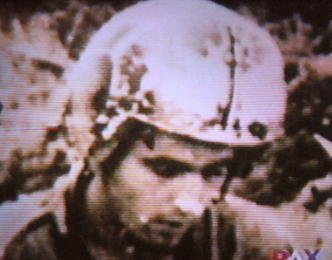 |
|
ALFOND: : The National Security Counsel was less than enthusiastic. They said that because the offer came through a third party, that it was just an empty gesture.
|
|
ORBACH: : Why is it that government officials are so quick to brush evidence of Americans still being held captive by nations with which we were once at war? Unfortunately, as it turns out, America still had more wars to fight. On April 22, 1970 during the Vietnam War, the fate of the American crew of the AC130A spectre gunship ĎADLIBí on an armed highly secretive mission over the Ho Chi Minh Trail in Laos hung in the balance.
|
|
NEXT SEGMENT
|





